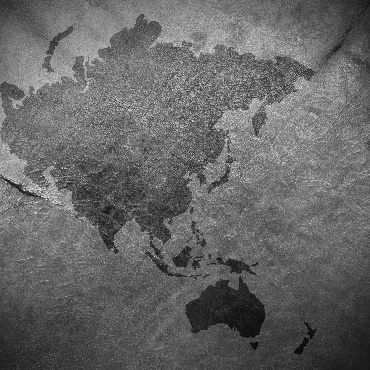PARIS NIXES NATO OFFICE IN TOKYO
French President Emmanuel Macron turned heads in April when, after meeting with China's Xi Jinping in Beijing, he warned against European governments becoming "America's followers" on Taiwan policy and advocated for "strategic autonomy" from the U.S. Since then, France has continued to complicate transatlantic unity on China policy, most recently through its opposition to the establishment of a North Atlantic Treaty Organization (NATO) liaison office in Japan. According to Philippe Sutton, France's ambassador to Japan, a physical presence for NATO in the Indo-Pacific could send "the wrong messages to China and partners in Asia who do not want to have to take sides." (The Japan Times, June 7, 2023; Nikkei Asia, June 13, 2023)
JAPAN UNDERWRITES DHAKA'S REGIONAL ECONOMIC AMBITIONS...
After nearly a decade, Japan's investments in a coastal economic corridor in Bangladesh are coming to fruition. A coal power plant in Matarbari, about two hundred miles south of the capital city of Dhaka, is poised to come online this summer. The plant is the centerpiece of former Japanese Prime Minister Shinzo Abe's 2014 Bay of Bengal Industrial Growth Plan, which aims to turn Bangladesh into a regional economic hub via overseas development assistance (ODA) loans for energy, shipping, and corporate projects. Bangladeshi Prime Minister Sheikh Hasina shares this ambition, and has spoken of Bangladesh as "the bridge between East and West and South Asia, Southeast Asia." To that end, Japan is angling to fund Bangladesh's first deep water port, which would boost Dhaka's regional commercial status. All this comes in the wake of Bangladesh's recent Indo-Pacific Outlook policy, which echoes America’s and Japan's vision for a "Free and Open Indo-Pacific." (Nikkei Asia, June 26, 2023; The Financial Express, April 24, 2023)
...AND GETS MORE COMPETITIVE WITH FOREIGN ASSISTANCE
Much has been made of China's downsizing of its Belt & Road Initiative (BRI). What in 2019 was a $100 billion project has now shrunk by $30 billion. But the BRI nevertheless remains active. Japan is responding to this reality by adjusting its foreign aid practices. Instead of engaging with projects by request, Tokyo will now begin proactively reaching out to prospective partner nations. Prime Minister Fumio Kishida's government codified this shift in its revised Development Cooperation Charter, which seeks to leverage Japan's advantages in clean energy and digital technology. Japan cannot match China at scale, as its official development assistance (ODA) budget for the current fiscal year is just over $4 billion. Kishida hopes to offset that asymmetry by emphasizing quality over quantity, avoiding economic coercion and maintaining the independence and sustainability of recipient nations. (Nikkei Asia, June 10, 2023)
MORE CHINESE SPY BALLOONS SPOTTED IN NORTHEAST ASIA
In late June, the BBC reported the discovery of additional Chinese "spy balloons," this time in Japanese and Taiwanese airspace. The revelation, which was the product of an AI-driven investigation, pinpointed overflights that occurred in September 2021. Japan, for its part, confirmed that a balloon had passed over its territory and publicly communicated its intent to shoot down subsequent overflights. Taiwan was more circumspect, and characterized the object as a weather balloon. Meanwhile, the U.S. Department of State has warned that China's spy balloons are equipped with "multiple antennas" and optimized for intelligence gathering. (BBC, June 26, 2023)
SEOUL, TOKYO TAKE STEPS TO TURN THE PAGE
The release of South Korea's new National Security Strategy in early June was the latest indicator of a significant shift in Japan-South Korea relations. At President Yoon Suk Yeol's direction, the strategy emphasized a warmer posture toward Tokyo and called for increased bilateral security and economic cooperation between the two countries. This marks a departure from South Korea's previous hard-line position vis-à-vis Japan, due mainly to issues of twentieth century Japanese imperialism and the forced sexual slavery of Korean "comfort women." While bilateral relations have ebbed and flowed over the decades, Yoon's strategy signals Seoul's desire to return to the outlines of the 1998 Japan-South Korea joint declaration, which called for a forward-looking policy. (Nikkei Asia, June 8, 2023)
Want these sent to your inbox?
Subscribe
